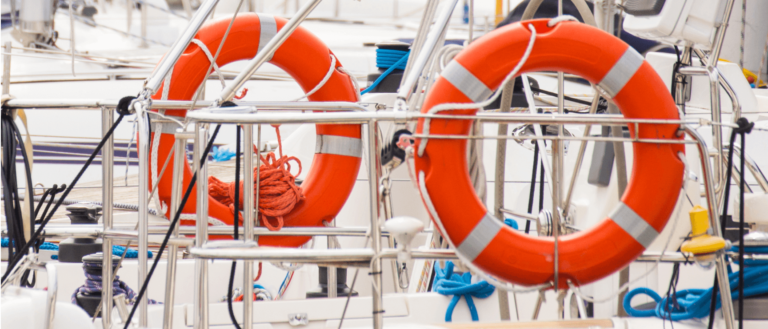As a new boater, it’s normal to buzz with excitement as you trailer up your boat, and get ready to hit the launch site. However, this also means that it’s easy to get lost in the moment and forget about safety altogether. Failing to take the proper precautions could spell disaster for you and your crew, so here are 5 safety tips for new boaters looking to stay safe on the water.
1. Remove The Risk Of Drowning With Life Jackets.
With more than 70% of boating fatalities being attributed to drowning, data shows that 80% of these individuals were not wearing a life jacket. If you’re headed out onto the water, it is critical that you and everyone in your crew are wearing a life jacket that fits your body weight and size. It doesn’t matter whether you’re headed out to fish, are day cruising, participating in water sports or just sightseeing, a life jacket is a must. If you find that regular life jackets are too bulky, consider purchasing an inflatable life vest as an alternative.
2. Always Steady Yourself With One Hand On The Boat.
Moving around on a boat while in open water is quite a bit different than walking on solid ground. Between the boat pitching back and forth and the unpredictable waves combined with such a small area to walk on, it’s important to move cautiously so as to not fall or injure yourself. Always keep one hand on the grab rails, and in rough water, make sure to tether yourself to the jack lines if you have these installed.
3. Taking Guests Out? Keep Extra Aware Of Hazards.
As a new boater, it is important to take extra care when taking guests out on the water. While you may feel very comfortable in your boat, your guests aren’t going to know what potential areas of the boat may pose hazardous to them. For instance, maybe some netting or line was left on the deck, or a cotter pin was left exposed, these create situations where a guest may cut themselves or trip and fall overboard. Clear out any potential obstructions, and remain extra aware of your guests at all times.
4. Be Prepared For Emergencies.
With the luxury of having that new boating experience comes with the added responsibility of being prepared for emergencies. You need to make sure that you’ve done some classes or simulations on how to handle your boat in rough conditions, how to rescue an individual who has gone overboard, and have a full understanding of where your boat’s essential items are located. Create a checklist of your boat’s fire extinguisher, VHF radio, light switches, medical kit, hatches, visual distress signals, sound producing devices, pollution placards, navigation lights, and tool kit and make sure you can find these in the dark.
5. Never Jump, Always Step Off When Anchored.
Whether you have guests aboard or not, always follow the no jumping rule. In an effort to anchor and tie up your boat to the dock at a quicker pace, you may be tempted to jump the clearing between when the boat is approaching the dock, and before it has fully come alongside it. However, something as simple as a misstep or some wind, and you could seriously injure yourself. Always step off your boat when it is alongside the dock, and learn how to handle your boat in close quarters.
How To Stay Safe On The Water





